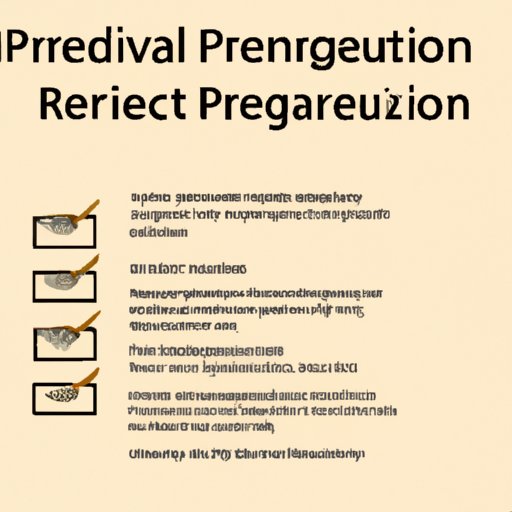Introduction
Peer review is an essential part of the scientific research process. It involves the evaluation of research by experts in the field who provide their unbiased assessment of the work. By reviewing the research of others, scientists are able to ensure that only the most reliable and accurate findings are published.

Definition of Peer Review in Scientific Research
Peer review is defined as “the evaluation of scientific, academic, or professional work by others working in the same field” (Oxford English Dictionary). The purpose of peer review is to assess the quality of research and to identify areas for improvement. This ensures that only the most reliable and high-quality research is published.

Purpose of Peer Review in Science
The primary purpose of peer review is to ensure the quality of research. Peer reviewers provide feedback on the methodology, results, and conclusions of the research paper. They also provide suggestions for improvement and offer advice on any potential ethical issues. Ultimately, peer review helps to ensure that only research of the highest quality is published.

How Peer Review Works in Scientific Research
The peer review process typically begins when a researcher submits a paper to a journal for publication. The editor of the journal then selects several qualified reviewers to evaluate the paper. The reviewers read the paper and provide feedback on its content, methodology, and conclusions. Based on the reviews, the editor makes a decision about whether or not to accept the paper for publication.
Types of Peer Reviews
There are two main types of peer reviews: open and closed. In an open peer review, the identity of the reviewers is made public. This type of peer review allows researchers to receive constructive feedback from peers in their field. In a closed peer review, the identities of the reviewers remain anonymous. This type of peer review is more common and helps to ensure impartiality and objectivity in the evaluation of research.
Benefits of Peer Review
Peer review offers many benefits to the scientific community. It helps to ensure the quality and accuracy of research, as well as promoting transparency and credibility. Peer review also encourages collaboration between researchers and can help to foster innovation in the field.
What is the Role of Peer Review in Science?
Peer review plays an important role in science by helping to ensure the quality of research. Through peer review, researchers are able to identify errors or inconsistencies in research papers and provide feedback on how the research could be improved. This helps to ensure that only the best research is published.
Exploring the Benefits of Peer Review in Science
Peer review offers many benefits to the scientific community. These include improved quality of research, increased transparency, and greater credibility. Let’s take a closer look at each of these benefits.
Improved Quality of Research
Peer review helps to ensure the quality of research by providing an objective evaluation of the work. Through peer review, researchers are able to identify errors or inconsistencies in research papers and provide feedback on how the research could be improved. This helps to ensure that only the best research is published.
Increased Transparency
Peer review promotes transparency in the scientific community. By publishing the identities of the reviewers, researchers are able to see who has evaluated their work and hold them accountable for their comments. This helps to ensure that research is evaluated fairly and objectively.
Greater Credibility
Peer review also helps to increase the credibility of research. By ensuring that research is of a high quality and free from errors, peer review helps to ensure that the findings of a study can be trusted. This helps to build confidence in the scientific community.
The History and Evolution of Peer Review in Science
The concept of peer review has been around since the 17th century. In 1665, the Royal Society of London established a committee to review and evaluate scientific papers before they were published. This was the first known instance of peer review in science.
Early Beginnings
In the 18th century, the practice of peer review became more widespread. Journals began to solicit reviews from experts in the field before deciding whether or not to publish a paper. This helped to ensure the quality and accuracy of research.
Modern Peer Review
Today, peer review is an integral part of the scientific research process. Most journals require that papers be reviewed by several experts before they are accepted for publication. This helps to ensure the quality and accuracy of research.
An Overview of the Process of Peer Review in Science
Peer review is an important part of the scientific research process. Here is an overview of the steps involved in the peer review process:
- A researcher submits a paper to a journal for publication.
- The editor of the journal selects several qualified reviewers to evaluate the paper.
- The reviewers read the paper and provide feedback on its content, methodology, and conclusions.
- Based on the reviews, the editor makes a decision about whether or not to accept the paper for publication.
When evaluating a paper, reviewers typically consider several criteria, including:
- Does the paper present new information or ideas?
- Are the methods used appropriate and robust?
- Are the results valid?
- Are the conclusions supported by the data?
- Are there any ethical considerations?
Conclusion
Peer review is an important part of the scientific research process. It helps to ensure the quality of research and provides greater transparency and credibility to published findings. Through peer review, researchers are able to identify errors or inconsistencies in research papers and provide feedback on how the research could be improved. This helps to ensure that only the best research is published.
(Note: Is this article not meeting your expectations? Do you have knowledge or insights to share? Unlock new opportunities and expand your reach by joining our authors team. Click Registration to join us and share your expertise with our readers.)
